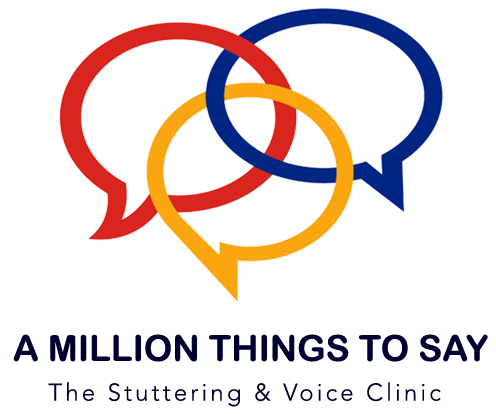Our son started stuttering at the age of 2. It is a difficult/worrisome time for parents as we didn’t know what to do and also can see the difficulty it creates for our son. We did seek a couple different opinions and tried a treatment but over the course of 2.5 year we didn’t have a lot of progress and more importantly Our son was demotivated to continue treatment. After a period of break – due to our sons de-motivation, things were going worse and we did restart the search. We did contact Gwyneth and she had availability to start seeing our son. First of all – from day 1 – she had excellent connect with our son. Despite different specialists use/follow same methodology- the main difference is with the person herself/himself. We had an intensive effort together and had meaningful progress over the course of 2+ years where today we are at a point our son overcame a lot of obstacles. One great point to highlight the connect between Gwyneth and our son is that – he actually love to see Gwyneth more frequently but as he improved now it is not needed:) As a parent – I hope you can have a chance to collaborate with Gwyneth in this journey – that requires resilience and patience. We are very grateful for all help / support Gwyneth gave us over the course of years.
– Cinar S
*Alex* was a 5 year old boy, who came to me for the treatment of stuttering after undergoing the Lidcombe program for stuttering with another therapist for 2 yrs. The challenge with someone who has had previous treatment is always to figure out what was done and what worked (and didn’t) for both parent and child.
When we first met, he presented as an intelligent and competitive boy who set high expectations of himself. He was definitely aware and sensitive towards his disfluencies. He did not like receiving any positive feedback about his speech and his first language was not English.
We had to work around building trust and rapport between therapist and child. Teaming up with the parent (in this case his mother) was critical for the child. His mother knew what didn’t work out from the previous therapist. Eg can you say ‘truck’ smoothly? The child would shut down as he knew that if he tried again, the chance of him stuttering would be high. The child did not like explicit praise given to his speech.
This child underwent the Lidcombe program again with a combination of a short period of syllable timed speech. We worked towards conditioning his fluency and desensitizing him to praise and correction for fluent/non fluent speech. This had to be skillfully and gradually done by taking in feedback from his mother each week, close observations of the child’s reaction to verbal contingencies in clinic and careful selection of motivating tasks to bring out more fluent speech.
This really emphasizes the importance of 1) trust and rapport building between child and therapist. 2) collaboration between parents and therapist. 3) perseverance from his mother in carrying out daily treatment for the child and support from his father. 4) the importance of adapting a program to suit each child within a evidenced based framework ie Lidcombe Program.

